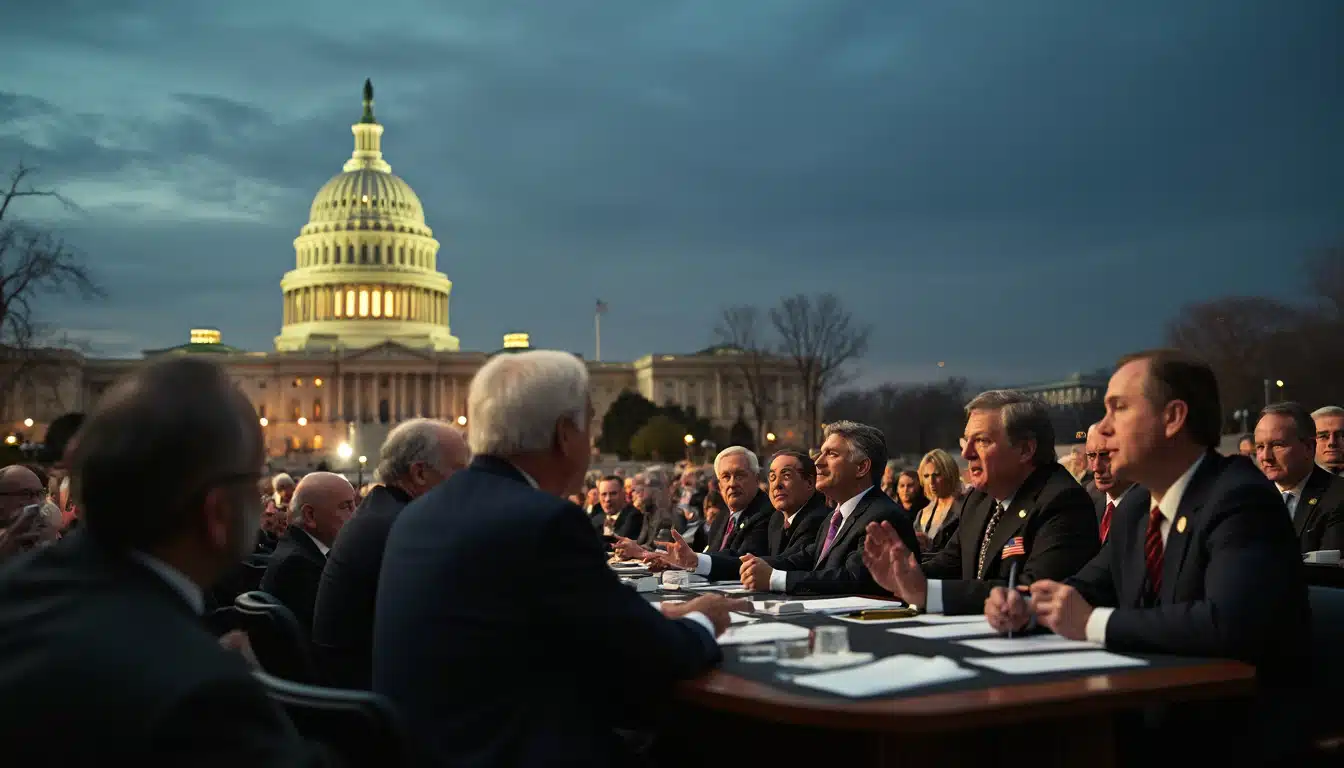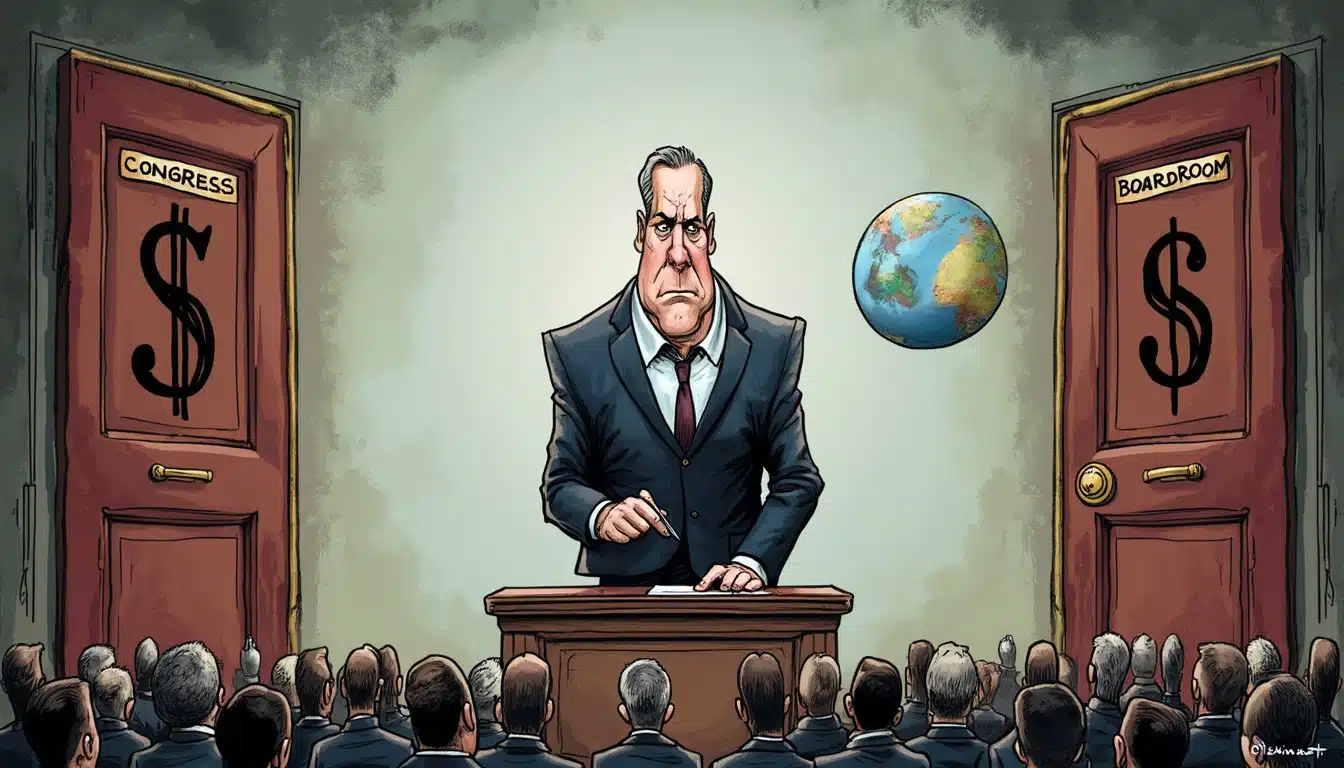The recent nomination of Troy Meink as Secretary of the Air Force has sparked significant scrutiny among U.S. senators. Concerns arise primarily from his past connections with SpaceX, particularly regarding alleged preferential treatment towards the company in defense contracting. Senators Elizabeth Warren and Tammy Duckworth have formally appealed to Meink for clarity on his connections to Elon Musk’s SpaceX and the influence of these ties on military contracts. Their inquiries reflect growing worries about the integrity of government oversight within the defense industry and the ethics of aerospace politics, especially in relation to national security.
As this situation unfolds, it raises broader questions about the intersections of politics, corporate influence, and the future of space exploration. The implications of Meink’s confirmation would extend far beyond mere appointments, impacting how aerospace contracts are managed and how military operations, particularly space-based endeavors, are conducted.
The Role of Senators in Military Nominations
The process surrounding military nominations, especially for high-ranking officials like the Secretary of the Air Force, involves a rigorous examination by the U.S. Senate. This is vital for maintaining governmental integrity and ensuring that individuals in key positions uphold a commitment to equitable treatment among contractors, particularly in sensitive areas like the defense industry.

Senate’s Oversight Function
The Senate’s role in oversight is essential, particularly when it comes to national security. Senators Warren and Duckworth have expressed their concerns, particularly regarding Meink’s obligations at the National Reconnaissance Office (NRO). Their letter specifically seeks to elucidate the nature of his involvement with decision-making processes that seemed to favor SpaceX, an influential contractor in the realm of military operations and satellite communications.
Meink’s nomination places him in a position where he could potentially influence several billion dollars in defense contracts, including those that relate to crucial space operations. This context makes the senators’ inquiries imperative, not just for clarity surrounding Meink’s past actions, but to reassure the public that defense contracts will be administered without bias.
SpaceX’s Growing Influence
SpaceX, under the leadership of Elon Musk, has rapidly evolved into a formidable player within the aerospace sector. Due to its role as a primary contractor for national security operations, concerns arise surrounding Musk’s advisory position within the Trump administration, specifically as head of the Department of Government Efficiency. His recommendations regarding appointments within the Department of the Air Force have raised eyebrows among seasoned politicians and analysts alike.
The growing footprint of SpaceX within military operations has become a focal point of political discussions. Reports suggest that Meink was involved in structuring contracts at the NRO that disproportionately benefitted SpaceX, leading to increased scrutiny regarding governmental oversight in defense contracts. Senators Warren and Duckworth emphasize that a transparent evaluation of past and future contracts is critical for fostering fair competition within the industry.
National Security and Aerospace Politics
The questions surrounding Meink’s connections to SpaceX also evoke larger discussions about the implications for national security. As military operations evolve, the integration of private entities like SpaceX compels a reevaluation of existing contracts and the relationships formed between public agencies and powerful corporations. The interplay between government and industry raises essential issues regarding oversight and ethical collaboration.

The Impact of Corporate Influence
Elon Musk’s position, coupled with SpaceX’s dominance in the launch services market for the U.S. Space Force, creates a landscape where corporate influence on military contracts can potentially jeopardize national security protocols. Critics argue that favoritism shown toward certain contractors undermines the principles of fair competition, potentially compromising the integrity of the defense procurement process.
In light of these concerns, the senators have persistently urged for a thorough investigation of Meink’s connections with SpaceX. This includes a demand for insight into the contract management strategies he employed while at the NRO that allegedly favored SpaceX and raised significant ethical questions about how military contracts should be awarded.
The Future of Military Contracts
The ongoing scrutiny surrounding Meink’s nomination signals a critical moment for the Air Force and its contracting processes. The integrity of military nominations hinges on transparent evaluations of a nominee’s past ties to influential players in the aerospace politics arena.
| Key Players | Role | Significance |
|---|---|---|
| Troy Meink | Nominee for Secretary of the Air Force | Responsible for significant defense contracts |
| Elon Musk | CEO of SpaceX | Influential in aerospace and defense contracting |
| Elizabeth Warren | Senator, Massachusetts | Critically examining Meink’s ties to SpaceX |
| Tammy Duckworth | Senator, Illinois | Addressing ethical implications of aerospace contracts |
Political Implications of Defense Industry Scrutiny
The political ramifications of scrutinizing defense industry nominations extend beyond the Senate floor. As senators delve into Meink’s past with SpaceX, they highlight the potential dangers of corporate interests infiltrating government. The balance of power between aerospace companies and government contracts must be carefully managed to ensure national security is never compromised.

Accountability in Defense Contracts
With national security at stake, ensuring accountability in the defense industry is paramount. Meink’s potential leadership of the Air Force could either reinforce or disrupt existing protocols surrounding contracts. The senators’ inquiries exemplify the critical need for rigorous oversight in evaluating nominations, ensuring that such positions are free from personal biases or prior affiliations that might taint decision-making processes.
The hesitation to confirm nominees whose ties present conflicts of interest serves to protect the integrity of defense operations and maintain public trust in government institutions. Addressing these issues head-on fosters an environment where military acquisitions operate transparently and effectively, supporting the nation’s broader security objectives.
The Future of Aerospace Politics
Aerospace politics, influenced by the likes of Elon Musk and corporations such as SpaceX, will undoubtedly continue to evolve as space exploration accelerates. This engenders the necessity for thoughtful discourse surrounding how such interactions impact military capabilities and national security. As contracts are awarded and partnerships formed, transparency and ethical diligence must remain at the forefront of government oversight practices.
Looking Ahead at Air Force Leadership
The inquiry into Troy Meink’s nomination poses important questions for the future of Air Force leadership and military contracting practices. As senators push for more transparency, the implications of SpaceX’s growing influence in both public and private sectors become clearer. Understanding these dynamics will shape how aspiring leaders navigate the overlapping realms of government oversight and aerospace innovation.
What remains crucial is the clarity of purpose behind military nominations and the safeguarding of national interests. The coming weeks will dictate the trajectory of Meink’s nomination and potentially set a precedent for how connections in the defense industry will be perceived and managed in the future.




Leave a Reply